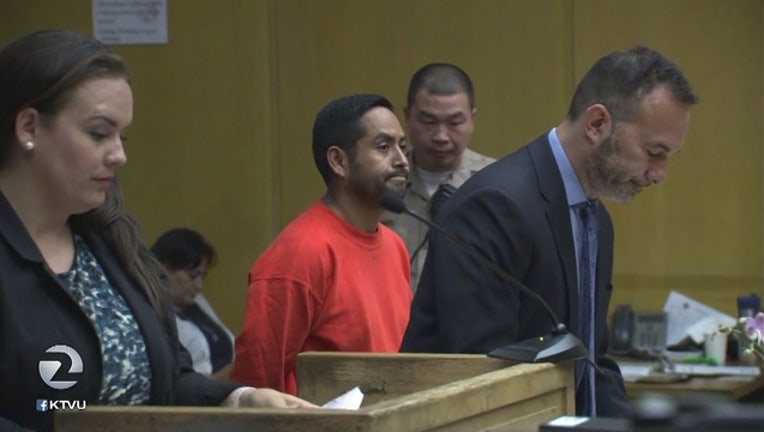Judge rules to let 'Rideshare Rapist' case proceed with DNA evidence

SAN FRANCISCO (BCN) - Following a court hearing that lasted four days and included lengthy testimony from officers who investigated accused rapist Orlando Vilchez Lazo, a San Francisco judge on Wednesday agreed to let the case proceed.
Superior Court Judge Newton Lam ruled against a motion filed by Vilchez Lazo's attorney, Deputy Public Defender Sandy Feinland, to void the search warrants used in the case -- warrants that ultimately led to Vilchez Lazo's arrest.
Police had dubbed Vilchez Lazo, 38, the "Rideshare Rapist" for allegedly posing as a ride-hailing driver in order to target and sexually assault intoxicated women leaving downtown nightclubs. Prosecutors said he's linked by DNA evidence to four separate sexual assaults in the city: one in 2013 and three in 2018.
In addition to the motion to void the warrant, Feinland had also filed a motion to suppress the DNA evidence, among other evidence. Newton, however, did not rule on that motion.
According to Feinland, the initial July 7, 2018, traffic stop on Vilchez Lazo by police patrol officers was illegal. The officers made the stop at the request of Sgt. Mark Lee, who had been watching Vilchez Lazo's silver Honda circle the block several times near Temple nightclub at 540 Howard St.
Last week, Lee testified that after stopping Vilchez Lazo and identifying him, the officers then asked him to blow into a Breathalyzer at Lee's request for the purposes of getting DNA for the rape investigation.
"They weren't really investigating a DUI, that was a rouse," Feinland said Wednesday, adding that officers should have instead used a search warrant to obtain the DNA.
Feinland further argued that investigators "didn't lift a finger to investigate Vilchez Lazo before the DNA hit," which resulted in a search warrant that ultimately led to Vilchez Lazo's July 12 arrest. Feinland asked Lam to toss out any evidence found during execution of the search warrant because the warrant was based on information that was unlawfully obtained: the DNA evidence.
Lam, the same judge who signed the warrant produced after the DNA was obtained, said that when he signed the warrant, he believed police had probable cause to pull Vilchez Lazo over, citing Lee's observations of what he believed to be a suspicious vehicle.
Lam also cited clues that investigators already had to go on, such as information from a Google search and a vague physical description of the suspect and his vehicle.
Following Lam's ruling, Feinland indicated in court he would file a motion to set aside information.A preliminary hearing for the case has been set for July 31.

